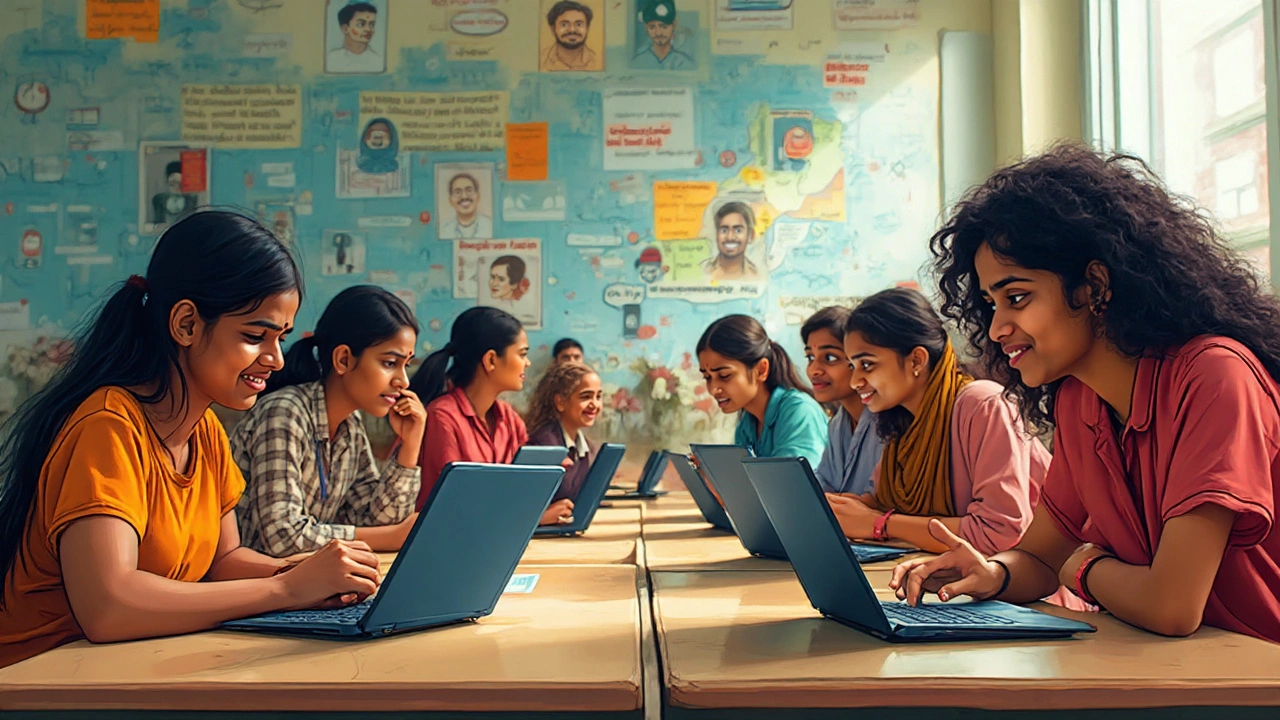Every coder, even those who seem born with a keyboard stitched to their hands, has once wanted to toss their laptop out the window. The frustration isn’t just for newbies—people with years of experience still say it. So, the big question is: does coding ever get easier, or is everyone just pretending? Spoiler alert: It actually does get easier, but not in the way you might expect. And no, you’re not the only one who’s battled rage at a missing semicolon at 2 A.M.
The Early Struggle: Why Coding Feels Insanely Hard At First
Think about the first time you learned to ride a bike—or tried. You fell off, skinned your knee, and thought about cursing whoever invented two wheels. Now, look at someone who’s ridden for years; they don’t even remember that phase. Coding’s remarkably similar. At first, everything is new: syntax, logic, weird error messages that seem written by someone who actively wants to confuse you. You Google, you copy-paste, and sometimes, despite your best efforts, nothing works. It feels personal.
Psychologists call this the "plateau of latent potential." For weeks or months, you grind with what feels like no progress. Your brain is rewiring but the effects aren’t obvious yet. Stanford's Carol Dweck, in her book on "growth mindset," points out that people often quit just before they’re about to break through. Yes, it’s tough. But if your brain hurts, you’re probably learning.
Coding languages each bring a new set of rules—Python is gentle, JavaScript gets weird with its type juggling, and C++ can make you question your life choices. Add in code editors, Git, command lines, and suddenly you’re juggling a circus, not just learning a skill. That’s normal. Even seasoned programmers, when picking up a new framework, feel like beginners again.
Errors and bugs don’t care if you’re a genius or a complete rookie. Legendary coder Grace Hopper famously said, “It’s easier to ask forgiveness than to get permission.” In code, that means experiment, mess up, fix it—don't freeze up. Every error message, confusing as it may be, is teaching something specific. Google, Stack Overflow, GitHub Issues, and hidden corners of Reddit become your best friends. Everyone learns by fixing their broken code.
Your first year often feels like being dropped in a foreign country without a map. Everything’s in another language. The only way to get comfortable is to keep reading, writing, and tinkering. My advice? Own your rookie status. Write messy code, ask "dumb" questions (they’re not dumb), and never be embarrassed by googling. Even experienced programmers google daily—no joke.

Real Progress: How Things Actually Get Easier Over Time
One thing I wish someone had told me: the basics never stop being useful. When you finally get loops, conditionals, and functions to stick, they unlock the world for you. After about six months to a year of regular practice (think a few hours a week), you start recognizing patterns. Suddenly, you’re not just copying; you’re actually understanding what’s happening under the hood.
Here’s the wild part: what gets easier isn’t the code, but your brain. With enough reps, your eyes just spot certain bugs faster. You memorize shortcuts without thinking. You know where to look when something breaks. Pretty soon, tools and syntax melt into the background, and you start focusing on actually building things—and that’s where the fun begins.
Coding will always have some hard days, but your tolerance for "not knowing" grows. When you fix your first tricky bug on your own, it's like winning a gold medal at a quirky Olympics only developers attend. Nolan, my husband, remembers the first time a backend API he wrote actually worked. We celebrated with tacos. These little wins keep you going through the rough days.
You pick up habits that help: writing pseudocode before you touch a laptop, stepping away when stuck, and building side projects just for kicks. An interesting fact: Microsoft did a study of its developers and found those who routinely take breaks when frustrated come back with solutions 20% faster. Your brain keeps working, even when you’re not staring at the screen.
One trick nobody talks about enough—write code with someone watching over your shoulder. Pair programming, or even just explaining your logic to a rubber duck, helps you catch mistakes you’d never notice alone. That’s why code communities feel like home to so many people. When you surround yourself with supportive folks—online or in meetups—getting help or sharing weird bugs becomes normal, not embarrassing.
Stack Overflow, GitHub, Discord servers—these are more than Q&A bazaars. They’re virtual support groups for people fighting the same battles. Sure, some answers are snarky, but most of the time, someone chimes in with a “Been there—here’s what worked for me.” Save those threads. Reference them. Building your own coding "toolbelt" of tricks and resources makes everything less terrifying.
Cheat sheets aren’t cheating. They’re lifelines. Find them, make your own, glue sticky notes to your monitor if you need to. The day you realize you haven’t looked at one in a week, smile—you just leveled up. But never feel ashamed about peeking. Mastery is less about memorizing everything, more about knowing where to find answers fast.
One last thing: Don’t measure yourself against others. Compare your code now to three months ago. If you’re stuck, ask yourself if this problem would have stumped you last season. That’s your growth. Everyone’s pace is different. Artificial intelligence coding assistants (like Copilot) can help boost your workflow, but the basics? Still essential.

Practical Tips: How To Make Coding Less Overwhelming
If you want coding to finally feel easier, routine and strategy matter more than “talent.” Here are some things that helped me and countless beginners:
- Work on a real project, not just tutorials. Build a to-do app, weather checker, or website about your favorite band. When you make something you care about, it’s way easier to keep going when code misbehaves.
- Break each problem into chunks. Don’t try to code everything at once. Map out each step, solve little problems, then connect the dots. Every pro does this, always.
- Leverage the power of spaced repetition. Instead of coding all weekend and then taking six days off, try short, regular sessions. Even 30 minutes a day adds up fast.
- Write comments in your code for “future you.” You’ll forget what you meant otherwise—and nobody likes untangling spaghetti six months later.
- Read other people’s code on GitHub. Even messy, abandoned projects teach you new tricks. Sometimes, it’s just comforting to see that everyone struggles with weird variable names.
- Set up your development environment just how you like it. Change the font, add color themes, customize keyboard shortcuts. A comfy setup makes those long sessions bearable.
- Use version control (like Git) early. It saves you from losing work, and lets you go back in time to undo mistakes. Every company expects this skill.
- Celebrate small wins. Solved a bug? Treat yourself. Got through a tough tutorial? High five (even if it’s just to yourself or your pet).
- Don’t skip the basics. Data structures and algorithms sound scary, but even a basic understanding makes everything else click into place.
- Accept help. Watching YouTube tutorials, joining online communities, and asking questions aren’t signs of weakness—they’re the secret weapons of everyone who makes progress.
If you ever feel burnt out, step away. Go for a walk, make a snack, touch grass (literally, if you can). As mentioned earlier, studies at Microsoft and MIT showed that walking away during frustration actually improves problem-solving ability. Your subconscious chews on the issue while you’re busy elsewhere.
Keep a learning log or personal cheat sheet. Jot down solutions, favorite resources, and common mistakes. When you run into the same problem again—and you will—it’s nice to have your own wisdom to reference. My folder full of screenshots and half-written explanations is a lifesaver during tough sprints.
The truth: coding doesn’t become “easy.” It becomes familiar. The badge of a coder isn’t about never getting confused—it’s about not panicking when you are confused. You learn to trust that the answer exists, you’ll find it, and yes, it really will get better with practice. So if you’re wondering if does coding get easier, keep going—you’re closer than you think, one solved error at a time.





